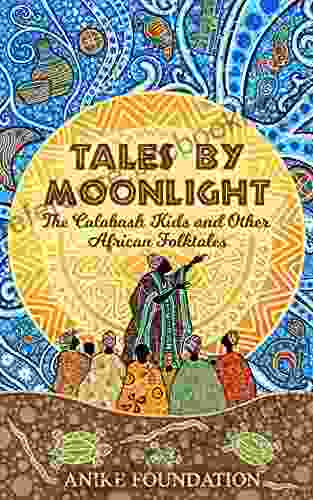Divorce and the Romance of Independence in Contemporary Japan: Unraveling the Hidden Truths

Divorce was once a taboo subject in Japan, shrouded in social stigma and societal disapproval. However, in recent years, the country has witnessed a steady increase in divorce rates, fueled by a complex interplay of social, cultural, and economic factors. "Divorce and the Romance of Independence in Contemporary Japan" delves into this intriguing transformation, exploring the experiences and perspectives of Japanese divorcees as they navigate the challenges and embrace the possibilities of newfound independence.
5 out of 5
| Language | : | English |
| File size | : | 15125 KB |
| Text-to-Speech | : | Enabled |
| Screen Reader | : | Supported |
| Enhanced typesetting | : | Enabled |
| Word Wise | : | Enabled |
| Print length | : | 262 pages |
| Lending | : | Enabled |
Societal and Cultural Influences
Japanese society has traditionally placed a high value on family stability and conformity. Divorce was seen as a disruption of the social Free Download, with negative consequences for both the individuals involved and their families. However, societal attitudes towards divorce have gradually shifted in the face of changing demographics, economic pressures, and increasing individualism.
Women in Japan have made significant progress in education and employment, leading to a greater sense of financial independence and a desire for self-fulfillment. This has contributed to a decline in the stigma associated with divorce and an increase in women initiating divorce proceedings.
Legal Framework and Divorce Rates
Japan's divorce laws have also undergone changes over the years. In 1947, the Divorce Law was revised to allow for no-fault divorce, making it easier for couples to dissolve their marriages without assigning blame. This legal reform has played a significant role in the rise of divorce rates in Japan.
According to the Ministry of Health, Labour and Welfare, the divorce rate in Japan reached a record high of 3.5% in 2002 and has remained relatively stable since then. While still lower than in many Western countries, this represents a marked increase from the 1.2% divorce rate recorded in 1960.
Narratives of Japanese Divorcees
"Divorce and the Romance of Independence in Contemporary Japan" weaves together the compelling narratives of Japanese divorcees from diverse backgrounds and experiences. Their stories paint a nuanced picture of the challenges and opportunities that come with divorce.
Some divorcees describe the immense pain and emotional turmoil they endured during the separation process. They speak of the stigma they faced from family, friends, and colleagues, and the struggle to rebuild their lives as single individuals.
Others, however, embrace divorce as a liberating force, a chance to break free from unhappy or unfulfilling marriages. They recount the joys of newfound independence, the opportunities for personal growth, and the discovery of new possibilities.
Independence and Empowerment
Divorce often leads to a profound sense of independence and empowerment for the individuals involved. Japanese divorcees speak of the freedom to make their own decisions, pursue their own interests, and live life on their own terms.
For women in particular, divorce can be a catalyst for personal and professional growth. Free from the constraints of traditional gender roles, many divorced women find new opportunities for education, employment, and self-expression.
Gender Roles and Family Dynamics
Divorce has a significant impact on gender roles and family dynamics in Japan. The traditional patriarchal structure of Japanese society has begun to erode, with more and more women taking on roles that were once exclusively held by men.
Divorce often leads to a reassessment of gender roles within the family. Single mothers and fathers may find themselves having to fulfill both traditionally masculine and feminine responsibilities, leading to a more egalitarian distribution of childcare and domestic duties.
Social Stigma and Economic Factors
Despite the increasing acceptance of divorce in Japan, social stigma persists, particularly in rural areas or among older generations. Divorced individuals may encounter discrimination in housing, employment, and social circles.
Economic factors also play a role in shaping the experiences of divorcees. Women are more likely to face economic hardship after divorce, as they often have less earning potential and fewer financial assets than men.
Psychological Impact
Divorce can have a profound psychological impact on individuals, regardless of their age, gender, or background. The emotional toll of separation, the loss of a partner, and the readjustment to single life can be significant.
However, divorce can also lead to positive psychological outcomes, such as increased self-esteem, resilience, and a sense of liberation. Some divorcees report feeling happier and more fulfilled after ending an unhappy marriage.
"Divorce and the Romance of Independence in Contemporary Japan" offers a comprehensive and nuanced exploration of divorce in modern Japan. By delving into the societal, cultural, legal, and personal aspects of divorce, the book unveils the hidden truths behind the rising divorce rates and the profound impact it has on individuals and families.
The narratives of Japanese divorcees provide invaluable insights into the challenges and opportunities that come with divorce, highlighting the resilience, independence, and empowerment that can emerge from the ashes of a broken marriage.
As Japan continues to grapple with the complexities of divorce, "Divorce and the Romance of Independence in Contemporary Japan" serves as an essential read for anyone seeking to understand this evolving phenomenon and its implications for society as a whole.
5 out of 5
| Language | : | English |
| File size | : | 15125 KB |
| Text-to-Speech | : | Enabled |
| Screen Reader | : | Supported |
| Enhanced typesetting | : | Enabled |
| Word Wise | : | Enabled |
| Print length | : | 262 pages |
| Lending | : | Enabled |
Do you want to contribute by writing guest posts on this blog?
Please contact us and send us a resume of previous articles that you have written.
 Book
Book Novel
Novel Page
Page Chapter
Chapter Text
Text Story
Story Genre
Genre Reader
Reader Library
Library Paperback
Paperback E-book
E-book Magazine
Magazine Newspaper
Newspaper Paragraph
Paragraph Sentence
Sentence Bookmark
Bookmark Shelf
Shelf Glossary
Glossary Bibliography
Bibliography Foreword
Foreword Preface
Preface Synopsis
Synopsis Annotation
Annotation Footnote
Footnote Manuscript
Manuscript Scroll
Scroll Codex
Codex Tome
Tome Bestseller
Bestseller Classics
Classics Library card
Library card Narrative
Narrative Biography
Biography Autobiography
Autobiography Memoir
Memoir Reference
Reference Encyclopedia
Encyclopedia Angie Cruz
Angie Cruz Andre Norton
Andre Norton Amber Forrest
Amber Forrest Allen G Taylor
Allen G Taylor Amalie Howard
Amalie Howard Alicia Boemi
Alicia Boemi Alison Belsham
Alison Belsham Ali Vincent
Ali Vincent Angeline Boulley
Angeline Boulley Amy Mattson Lauters
Amy Mattson Lauters Alexander Ferrauti
Alexander Ferrauti Andrea Bartz
Andrea Bartz Angharad Lewis
Angharad Lewis Allen Ellenzweig
Allen Ellenzweig Andy Mcilree
Andy Mcilree Alicia Silverstone
Alicia Silverstone Alexandre Roger
Alexandre Roger Andrew Yueh
Andrew Yueh Alfred S Posamentier
Alfred S Posamentier Alice Marcs
Alice Marcs
Light bulbAdvertise smarter! Our strategic ad space ensures maximum exposure. Reserve your spot today!

 Giovanni MitchellUnveiling Breath of Fire: The Kingmaker Chronicles – A Saga Unfolding in the...
Giovanni MitchellUnveiling Breath of Fire: The Kingmaker Chronicles – A Saga Unfolding in the... Daniel KnightFollow ·13.6k
Daniel KnightFollow ·13.6k Devin RossFollow ·10.7k
Devin RossFollow ·10.7k William PowellFollow ·2.4k
William PowellFollow ·2.4k Tom ClancyFollow ·11.4k
Tom ClancyFollow ·11.4k Junot DíazFollow ·18.5k
Junot DíazFollow ·18.5k Houston PowellFollow ·6.6k
Houston PowellFollow ·6.6k Troy SimmonsFollow ·18.3k
Troy SimmonsFollow ·18.3k Donovan CarterFollow ·18.2k
Donovan CarterFollow ·18.2k

 Julio Cortázar
Julio CortázarIf You Don't Do Politics, Politics Will Do You
Uncover the Hidden Power in Everyday Life In...

 Ivan Turner
Ivan TurnerThe Edge of Physics: Unraveling the Extraordinary...
What is the nature of...

 Diego Blair
Diego BlairAn Intuitive Guide For Using And Interpreting Linear...
Linear models...

 Oscar Wilde
Oscar WildeThrough Two Doors At Once: Unveiling the Enigmatic World...
Prepare to delve into the captivating realm of...

 Darrell Powell
Darrell PowellWomen Athletes in History: An Inspiring Gift for Teenage...
Unveiling the Extraordinary Stories of Female...
5 out of 5
| Language | : | English |
| File size | : | 15125 KB |
| Text-to-Speech | : | Enabled |
| Screen Reader | : | Supported |
| Enhanced typesetting | : | Enabled |
| Word Wise | : | Enabled |
| Print length | : | 262 pages |
| Lending | : | Enabled |












